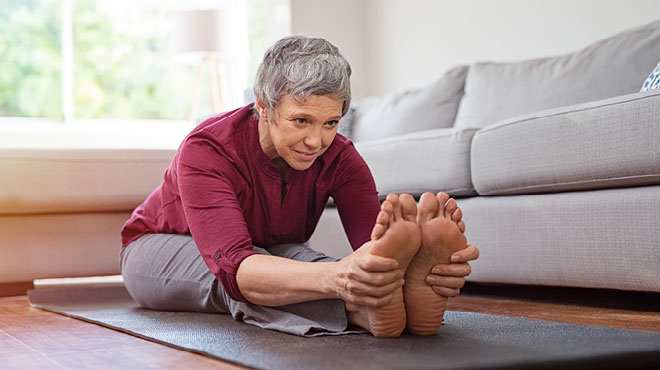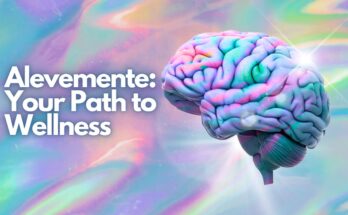Introduction
Pain is widely used to explain unpleasant sensations and experiences, it’s the signal that helps tell you that something is wrong. However, Chronic pain is one of the most disabling, burdensome and costly health conditions.
It reduces the ability to act, the manner in which you are no longer able to address yourself to others, it’s basically a state of vulnerability. Pain is capable of crippling your existence, health, mental health and likewise your level of reproduction when not properly managed.
This article is the right read for you, putting the self blame thoughts “it’s all in my head” into the drain as it provides details about how much pain affects living and what to do in navigating towards positivity despite it all.
What is Pain?
The current International Association for the study of Pain (IASP) defined pain as “An unpleasant sensory and emotional experience associated with actual or potential tissue damage, or described in terms of such damage.” It involves both the body and mind.
Pain is said to be physical when there’s stimulation of pain receptors throughout the body but particularly in surface tissues. Pain initiated in surface receptors are generally perceived as sharp, sudden and localised. Otherwise, pain experienced in internal organs tends to be dull, lasts longer and less localised.
Although pain is generally considered as a physical experience, it however involves behavioural, cognitive and affective factors. Pain is felt by individuals at various times and in different manners,it mostly happens without any permission, and sometimes uncontrollable.
Each individual’s experience of pain and how it’s expressed is as a result of the sensory experience, personal background, interpersonal context and the meaning it holds for the individual. When pain is felt, an individual tries whichever solution to get out of this feeling and if it remains unyielding, such an individual becomes static as this effort is repeatedly engaged in an attempt to make it all waffle away.
These attempts fail because it’s beyond control, lasts too long, impairs health and social functions, and does not respond to treatment. Then, you question what it’s that you suffer from. Read further to clear your doubts and see when pain becomes chronic.
Chronic Pain
Chronic pain is a long lasting pain that persists beyond the usual recovery period. It occurs for over three months, happening anywhere in the body. Chronic pain may be “on” and “off” or continuous.
Chronic pain interferes with normal activities of daily living such as eating, walking, bathing and taking care of yourself or others. Inability to carry out these basic functions poses a barrier to health. It’s also difficult having or maintaining a social life which leads to complications in mental health such as depression, trouble sleeping, anxiety, suicidal thoughts all of which further aggravates pain.
Characteristics of Chronic Pain
Chronic pain can be experienced in various ways, areas and it can also be of different types and causes.
- Duration: usually last longer than six months.
- Types: Aching, stinging, throbbing, burning and shooting.
- Location: Arthritis or joint pain, back pain and leg pain.
- Presence of insomnia
- Fatigue
- Mood swings
- Depression
- Anxiety
Causes of Chronic Pain
Chronic pain can occur as a result of several factors and can also be linked to no obvious cause.
Chronic pain may begin as a result of an injury or disease which have recovered but failed to heal properly or from an ongoing cause of pain such as cancer or arthritis.
Conditions such as severe headache or migraine, fibromyalgia; a condition characterized by stiffness and tenderness of the muscles, tendons and joints, infections, nerve damages can result in chronic pain.
Back pain is also a common factor which causes back pain and numerous factors contributing to back pain are:
- A congenital condition such as curvature of the spine.
- Improper heavy weight lifting
- Degenerative aging of the spine
- Persistent poor posture
- Obesity
However, the source of chronic pain is sometimes uneasy to point out. After the healing of physical ailments, the psychological effects during the course of illness may still persists giving rise to several mental health problems.
Risk Factors of Chronic Pain
This explains possible factors which can put you at risk of suffering from chronic pain conditions. These factors includes:
- Stress: Persistent exposure to chronic stress without any adequate rest can lead to certain health problems such as back pain which can cause the occurrence of chronic pain.
- Smoking
- Old age
- Obesity
- Previous surgical injuries
- Labour intensive jobs
Diagnosis
Pain is measured on a numeric scale of “no pain” to the “worst ever pain.” Pain can also be subjective in the sense that you can describe where and how you feel and how intense it feels.
Chronic pain can be diagnosed when intensity is measured on a scale of 0-10, how often it happens, for how long it lasts, how much it’s affecting life and reproduction, and how much it affects physical health and mental health.
Impacts on Daily Life.
Mental Health
The inability to maximize your greatest potentials even when you purely desire to due to barriers in health such as ‘chronic pain’ is enough to boil your blood in anger towards yourself, bringing about feelings of self hate, frustration and depression.
There’s a decrease in self esteem as a result of low productivity at work. Inability to carry out basic activities of daily living allows you to be dependent and this can bring about feelings of weakness or a personal defect.
Socialising with friends and families is greatly affected as you are in constant pain. This can drive you into isolation, loneliness and depression. You are unable to keep up with relationships, it’s tough to contribute financially, emotionally and mentally to normal family activities. This brings about resentments and communication breakdown.
Activities of Daily Living and Physical Functions.
Chronic pain drains your motivation to carry about your schedules. It can diminish concentration, memory, critical thinking ability and productivity. This makes it hard to run errands, manage finances, take care of yourself, kids and pets.
Activities such as brushing your teeth, bathing, attending to laundry, cooking, serving meals and eating becomes immensely difficult and this lowers hygiene, immunity and poses the body to infections affecting your general health.
Limitations are more severe when you find it difficult in performing essential activities such as sitting down or getting up.
Health
Quality of life is reduced when illness such as arthritis, fibromyalgia, osteoarthritis and low back pain causes a constant pain to shoot through the body.
Sleep Disturbances occurs as a result of chronic pain which may increase level of stress, irritability and discomforts. This prevents an individual from performing simple tasks and also affects activities in workplace and home. A poor night sleep also causes an increase in pain intensity the following day and vice versa.
Insomnia can give rise to disease associated with poor sleep such as hypertension, diabetes, cognitive impairment, heart diseases and cancer.
Management
Chronic pain can be managed effectively, erasing all feelings of guilt, shame and irresponsibility. Strategies in curbing its effects includes:
- Focus on the quality of relationships and friendship not quantity. A handful of close supportive friends are valuable and beneficial than a vast network of more superficial acquaintances.
- Seek the help of a therapist or a support group. Talk to closed friends about negative thoughts, do not bear it all alone.
- Be intentional about kicking away bad habits. Get more sleep, perform moderate exercises, eat healthy diets that helps nourish the body and strengthen the bones and muscles. This helps you to feel more energetic and cope better with your pain.
- Limit intake of alcohol and smoking as it causes more problems with pain and sleep.
- Manage stress well. Do not overwork yourself, prioritise your activities and create enough time for rest and self care.
- Occupational therapy: This gives you hints about how to carry on with your tasks daily in a different manner that will help lessen pain and injuries.
- Cognitive behavioural therapy: It helps you to think positively about your pain and how to cope well with it.
- Heat and cold treatments to reduce stiffness and pain.
- Treatment of the initial cause of pain.
Pharmacological approaches
- Muscle relaxants
- Anticonvulsant for seizures and nerve pains.
- Antidepressants
- Non steroidal anti inflammatory drugs(NSAIDs)
- Corticosteroids
Frequently Asked Questions
Are there different types of chronic pain?
Yes, it includes; neuropathic pain which affects the nerves and nociceptive pain which are receptors that gets activated when an injury occurs.
What alternatives can I try asides medications?
- Acupuncture
- Exercises
- Massage
- Mind body therapies
- Physical therapy
- Spinal cord stimulation
What are the barriers to effective pain management?
- Lack of efficient knowledge
- Cultural attitudes
- Perception of your pain
What if I am addiction to my pain medication?
Talk to your doctor, who will take actions such as:
- lower the dosage
- Stop the medication altogether
- Change to another medication
- Recommend that you talk to a psychologist about learning to deal with addictions.
Conclusion
Pain is not a feeling of shame or a thing you blame yourself for. Learn to embrace it positively, never give it the advantage to take control of your life, put your mind into being the best you can for yourself.
Learn, practice and stay consistent on all effective measures to live a sound, beautiful life like every other person.
Sources
https://www.spineuniverse.com/conditions/chronic-pain/common-chronic-pain-questions
https://www.ncbi.nlm.nih.gov/pmc/articles/PMC4935027/
https://www.hopkinsmedicine.org/health/conditions-and-diseases/chronic-pain
https://my.clevelandclinic.org/health/diseases/4798-chronic-pain
https://www.webmd.com/pain-management/guide/cause-chronic-pain




